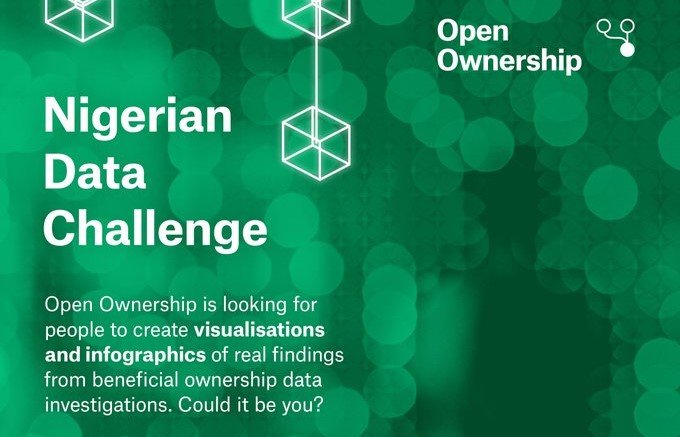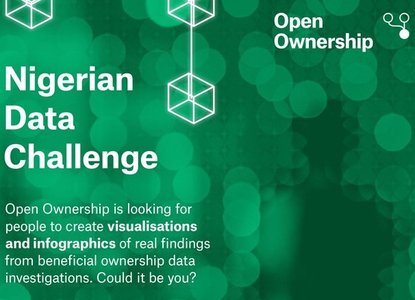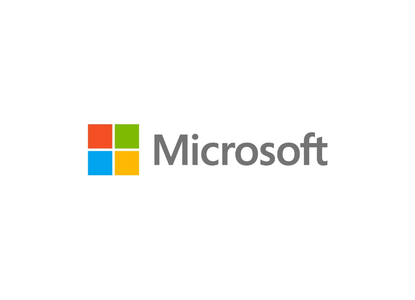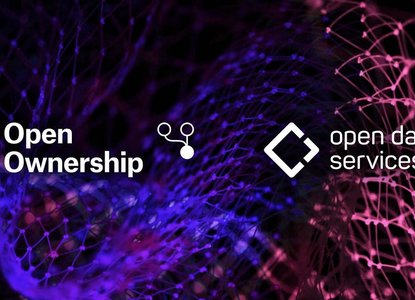Our Data Challenge: The power of beneficial ownership data

In celebration of the International Day for Universal Access to Information, over the last few weeks we set up a Data Challenge. We wanted to encourage data enthusiasts to explore available sources of beneficial ownership (BO) data and create visual representations to explain their findings to the public. The Nigerian Data Challenge invited participants to investigate beneficial owners using at least two of the following data sources:
- the Corporate Affairs Commission Beneficial Ownership Register,
- the Nigeria Extractive Industries Transparency Initiative beneficial ownership database,
- the Joining the Dots with Politically Exposed Persons platform,
- the UK’s Register of Overseas Entities spreadsheet, and the
- Open Ownership Register (full links are at the end of this article).
The challenge aimed to demonstrate the power of using publicly-available BO data, and to encourage transparency and accountability in business ownership. The results of the challenge are in, and the visualisations created by the participants are impressive.
"We are thrilled with the response to the Data Challenge and the quality of the visualisations created by the participants," said Agustina De Luca, Community Engagement Manager at Open Ownership. "The challenge was a great way to showcase the importance of BO data and how it can be used for impact."
We would like to thank all the participants who took the time to analyse data and share their findings with us. The challenge offered US$750 to the best submissions, and after careful consideration, the assessment committee (made up of representatives from Open Ownership, Directorio Legislativo, and the Civil Society Legislative Advocacy Centre) is pleased to announce the two best submissions. They were selected based on their visual representation of findings, accompanying notes, innovation, and use of the provided data sources.
Without further ado, the two individuals are:
- Zeke Hunter-Green with his investigation into Nigerian nationals owning land in the United Kingdom, and
- Boris Kusovski’s deep dive into Russian nationals as the beneficial owners of Nigerian state-owned enterprises.
Congratulations to them both for their outstanding analysis and creative use of the data sources.
Both individuals demonstrated the importance of cross-matching data sources to come up with relevant and impactful analyses. Their submissions were truly impressive, and we congratulate them on their well-deserved win. Once again, we would like to thank all the participants for their interest and effort in the challenge. We hope that this challenge has provided a platform for showcasing the power of data analysis and its potential to drive meaningful insights.
Over the coming weeks we will release more information from their investigations, but as a taster of what can be achieved by cross-referencing two or more sets of publicly-available data, we can reveal that Hunter-Green identified multiple oil company owners and bank investors owning more than GBP £20 million in property and land in the UK.. And in his investigations, Kusovski reveals that a Nigerian aluminium company is in fact owned by two Russian companies, both of which have a link to an individual Russian who is sanctioned by the United States of America.
Our stories in the coming weeks will reveal their findings in full.
The core data each submission used included:
- CAC’s Beneficial Ownership Register
- Nigeria EITI’s beneficial ownership database
- Joining the Dots with Politically Exposed Persons platform
- Register of Overseas Entities spreadsheet
- The Open Ownership Register
In celebrating Access to Information Day, we are delighted that these two examples demonstrate the potential for meaningful investigations using quality, publicly-available BO data. Open Ownership continues to work closely with the Nigerian government to support their public BO Register, as well as creating useful tools to improve data analysis and build the capacity of data analysts to embed BO data in their work. If you would like to learn more, please email Agustina De Luca on [email protected].
Related articles and publications
Publication type
News article
Country focus
Nigeria
Topics
Open Ownership Register
Sections
Impact,
Technology
Open Ownership Principles
Central register,
Structured data


